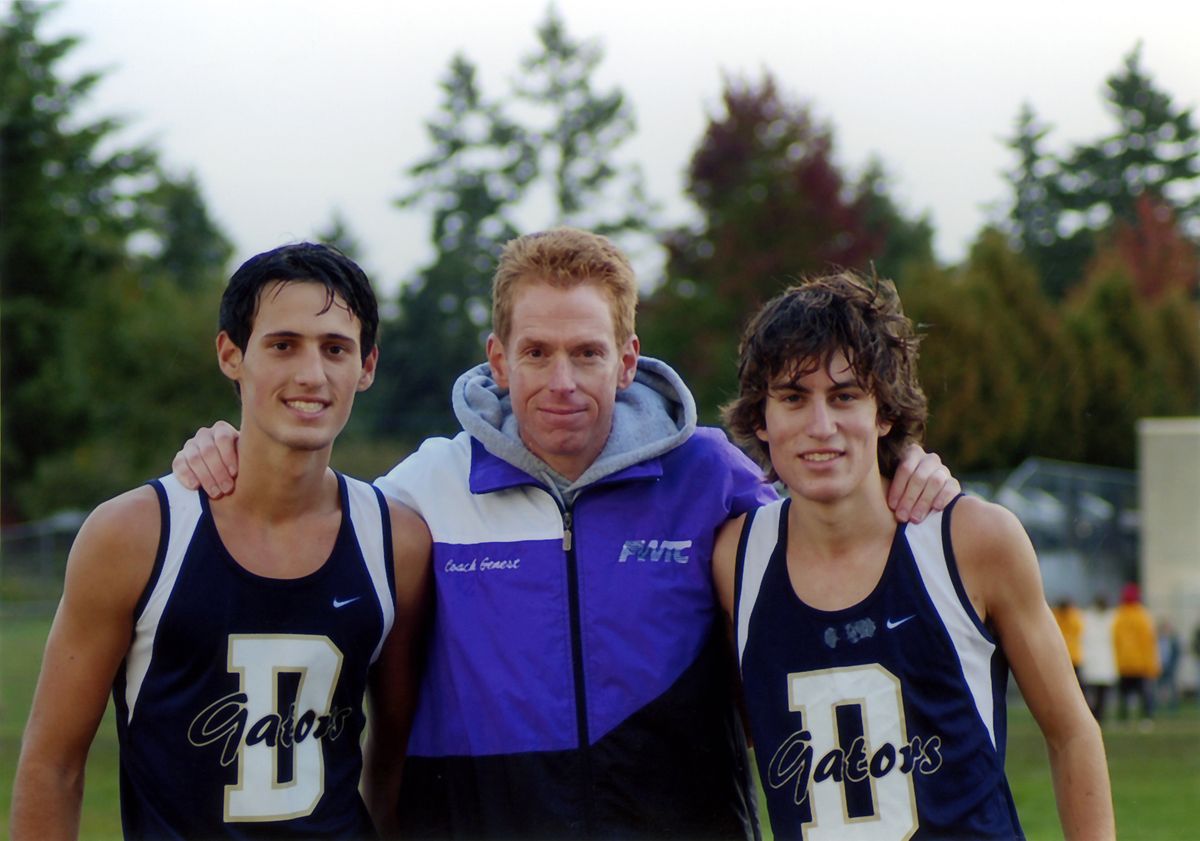Then & Now: Darryl Genest
Running is still in his blood

Darryl Genest can look back on his high school career and wonder what if.
He was the top runner for Mead in the early 1980s, before the Panthers developed into a distance dynasty. Then, as now, competition in the Greater Spokane League was stiff, and though he ran No. 1 on the team for two seasons, Genest never made it to state in track or cross country.
Had he not been so focused on what he wanted to accomplish, he might have dwelled on what he hadn’t. Instead, he shopped for a college where he could continue running and study chemistry and biology.
The perfect fit was Eastern Washington.
“Three months later I was the No. 2 runner on a national championship cross country team,” he said. “Go figure.”
Yet despite his success in a traditionally tough league, the freshman who helped the Eagles win the 1982 NCAA Division II national title wasn’t getting paid to run.
“I was pretty motivated,” he said. “I was training upward of 100 miles a week before the first practice. I was a walk-on. I just came out of the woodwork.”
He also found a strong team bond in an individual sport. Jerry Martin coached more than 30 runners and the competition for the weekly varsity seven was intense. According to Genest, on occasion the second seven would go to a meet and win while the varsity was off winning somewhere else.
“Jerry Martin – we called him the Silver Fox – had an eye for good, up-and-coming runners,” Genest said. “He took the next tier of runners, hard workers with a passion for running. … He really took an interest in his runners. That’s what I saw when I talked to him. We were ‘Jerry’s Kids,’ that was our joke.”
The Eagles’ first road trip was almost the last for Genest when he injured a hip flexor tripping on the course in Fairbanks, Alaska. He stayed in shape in a swimming pool and came back three weeks later to place second in a JV meet, regaining varsity status.
And Eastern’s first NCAA championship almost wasn’t. At the regional meet in San Luis Obispo, Calif., the Eagles finished third when only the top three teams advanced.
It was a different story at nationals.
On a snowy course in St. Cloud, Minn., Eastern scored 84 points, a whopping 39 ahead of South Dakota State. Team captain Steve Pybus led the way, finishing 14th. Genest (16th) and Monte Wright (25th) earned All-America honors. Greg Meyer finished 32nd, passing more than 130 runners after tripping at the start and losing a shoe. Other finishers were Ed Dotter (33rd), Mark Hoitink (66th) and Matt Morgan (88th), who tumbled headfirst into a snowbank at the start.
By the time his freshman year was over, Genest had gone through his savings and would have had to give up running to work if Martin hadn’t put him on scholarship in 1983, when the Eagles became a Division I program – a challenge Genest and his teammates embraced.
“We wanted to be a smaller fish in a big pond rather than the big fish in a small pond,” he said.
A few years after graduation, Genest and his wife Holly (Jobs), a Shadle Park and EWU grad, moved to the West side. Genest took a temporary job at Weyerhaeuser headquarters in Federal Way and is now a chemist in research and development.
“I’m one of those very fortunate people that absolutely loves their job,” he said. “It’s never the same.”
But he hasn’t let go of running. He entered a road race hosted by the Federal Way Track Club, joined as an assistant track coach in 1993 and a year later started a cross country program. He has guided 16 national championship teams in various age groups with 11 individual champions and 33 age-group All-Americans.
“We never had children of our own,” he said. “We just got so involved raising other people’s kids. We love kids.”
He has also continued to run, participating in all but two Bloomsdays, finishing in the top three of his age group 12 times. At last summer’s Masters meet in Spokane, he won a bronze medal in the 5,000 meters and was fourth in the 10,000.
“My style is to run with the athletes,” he said. “It gives me a feel for their effort and it seems to inspire them. As long as I can continue to do that, I’ll continue to coach. My calling in life is to work with kids and make a difference. As long as I can do that, I’ll be coaching … helping kids find their way, be the best they can be.”
It certainly worked for him.